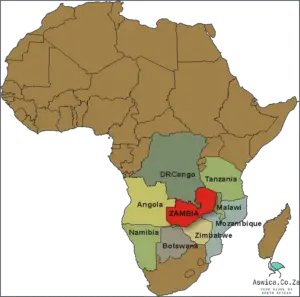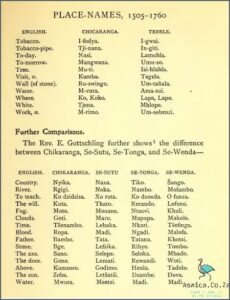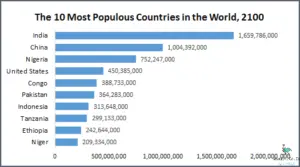
There are currently an estimated 7,000 languages in the world. That number is constantly growing, though, as new languages are created and old ones die out. It’s hard to say exactly how many languages there are, because there’s no agreed-upon way to count them.
The number of languages in the world is constantly changing, because new ones are being created and old ones are dying out. However, there are currently an estimated 7,000 languages in the world.
Contents
- 1 How Many Languages In The World
- 2 Overview of Languages: Different language families, most widely spoken languages, languages spoken in different regions of the world
- 3 Language Preservation: Impact of globalisation on the preservation of languages, challenges to language preservation
- 4 Language Learning: Benefits of learning multiple languages, ways to learn multiple languages
- 5 Conclusion
How Many Languages In The World
The world is full of languages, and it is estimated that there are approximately 6,912 spoken languages across the globe. This number is constantly changing as languages quickly emerge and then vanish, as well as dialects that are born and die within a generation. While most of these languages are spoken, some are only written or are used for ceremonial purposes. Moreover, some languages are so distinct that even speakers of closely related languages cannot understand each other. Furthermore, many languages have multiple dialects, which can vary greatly from region to region. All in all, the exact number of languages in the world is impossible to know with absolute certainty, but it is safe to say that there are more than enough to ensure that everyone has a language to call their own.
Overview of Languages: Different language families, most widely spoken languages, languages spoken in different regions of the world
Have you ever wondered how many languages are spoken in the world? It might surprise you to know that there are at least 7,000 languages spoken across the globe and this number is constantly growing. Languages have been around since the dawn of time, evolving and changing over centuries and even millennia. In this article, we will explore the various language families, the most widely spoken languages, and the languages spoken in different regions of the world.

When discussing languages, it is important to understand the concept of language families. A language family is a group of languages that share a common ancestor. This ancestor can be an ancient language that no longer exists, or a modern language that is still spoken today. For example, the Romance language family includes French, Spanish, and Italian, all of which are descended from Latin.
The most widely spoken languages in the world are Mandarin Chinese, English, Spanish, Hindi, and Arabic. These five languages make up the majority of the world’s population and are the most commonly used languages in international communication. English, in particular, is the language of business, education, and science, and is the most widely spoken language among native speakers.
In terms of regional languages, there are many languages spoken in different parts of the world. In Europe, French and German are two of the most widely spoken languages, while Spanish and Portuguese are popular in Latin America. In Asia, Mandarin Chinese and Japanese are two of the most widely spoken languages, while Hindi is the language of India. In Africa, Swahili is the most widely spoken language, although there are hundreds of other languages spoken throughout the continent.
In conclusion, there are at least 7,000 languages spoken in the world today. These languages can be divided into various language families, with the most widely spoken languages being Mandarin Chinese, English, Spanish, Hindi, and Arabic. These languages are spoken in different parts of the world, with regional languages such as French and German in Europe, Spanish and Portuguese in Latin America, Mandarin Chinese and Japanese in Asia, and Swahili in Africa.
Language Preservation: Impact of globalisation on the preservation of languages, challenges to language preservation
Globalisation has had a huge impact on the preservation of languages across the world. It has been a major cause of language decline, as it has led to an increase in the spread of English as a global language. This has led to a decrease in the use of local languages, as people move to larger cities and adopt the language of the majority.
The impact of globalisation on language preservation has been particularly severe in rural areas. These areas often have limited access to education, technology and media, meaning that local languages are not being passed on to younger generations. This has led to a decrease in the use of these languages, and in some cases, to them becoming extinct.

The challenges to language preservation are multifaceted. The main challenge is providing access to education and resources to enable people to learn and use their local language. This requires investment in language-specific infrastructure, such as schools, media outlets and technology. Additionally, there is a need to raise awareness of the importance of language preservation, and to provide support to local language speakers.
In order to counter the impact of globalisation on language preservation, governments and organisations need to take action. This includes increasing access to education, investing in language-specific infrastructure, and providing support for local language speakers. Additionally, initiatives such as UNESCO’s Language Vitality Index can help assess the vitality of languages and ensure that they are being supported and preserved.
Currently, there are approximately 7,000 languages spoken around the world, making language preservation a complex and far-reaching issue. To ensure that these languages are preserved and passed on to future generations, it is essential that governments, organisations and individuals take action to make sure that local languages are supported and valued.
Language Learning: Benefits of learning multiple languages, ways to learn multiple languages
It has often been said that learning multiple languages is one of the greatest gifts you can give yourself, and with good reason. Knowing multiple languages opens up a whole new world of opportunities and experiences. But how many languages are there in the world?
The answer to that question is not so straightforward. Depending on who you ask, you may get different answers. According to Ethnologue, a language catalog, there are currently 7,117 living languages spoken around the globe. This figure is constantly changing as languages evolve, merge, and become extinct.

Learning multiple languages has numerous benefits. It helps to keep your mind active and improves your memory. It also increases your problem-solving abilities, as you learn to think in new ways. Additionally, you will gain a deeper appreciation for different cultures, as you understand their language and customs.
The best way to learn multiple languages depends on your goals and the resources you have available. If you have the time and money, you may consider attending language classes or hiring a tutor. Private tutoring can be expensive, but it is often the quickest way to become proficient. If you cannot afford private lessons, there are also plenty of free online resources that can help you learn.
You can also learn a language by immersing yourself in it. Try watching movies, reading books, and listening to music in the language you are trying to learn. If you know people who speak the language, ask them to help you practice.
Learning multiple languages can be a difficult and time-consuming task, but the rewards are well worth the effort. With a little bit of dedication, you can open up a whole new world of opportunities and experiences.
Conclusion
According to UNESCO, there are over 7,000 languages in the world. This means that each and every person on Earth speaks at least one language. This is an incredible feat, and one that shows the diversity and richness of human culture.
Languages are essential to the way that we communicate and interact with each other. They help us to share our thoughts and feelings, and they are a key part of the global community. They are also important for the development of our societies and cultures.
The world is a truly amazing place, and it is thanks to the diversity and richness of the languages that we inhabit it. Thanks for reading!




